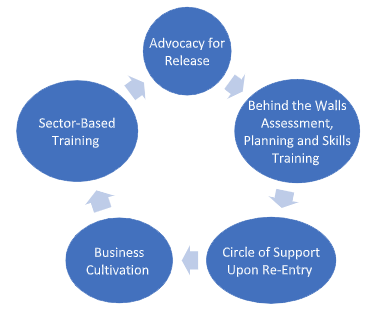Today, there are nearly 2.3 million people incarcerated in America’s prisons and jails. Each year 25% will return to their community—and within three years 67% will be rearrested. When individuals leave prison, they face a daunting challenge of successful re-entry. They often have a limited job history and poor social networks. They struggle with housing and family relationships. Employment is a fundamental component to improving the rate of successful reentry and reducing recidivism, yet involvement in the criminal justice system can be a significant barrier to employment.
The Fedcap Group has designed a criminal justice platform that is demonstrating improved outcomes and reduction in recidivism.
Our platform involves five inter-related interventions:

By re-engineering the critical path, leveraging precise resources available and creating a sense of urgency for this population, we are changing outcomes. The efforts of The Fedcap Group are not intended to duplicate existing services but rather to strengthen the entire system by engaging and realigning service capacity and response, ensuring a fully coordinated and more efficient and effective approach.
